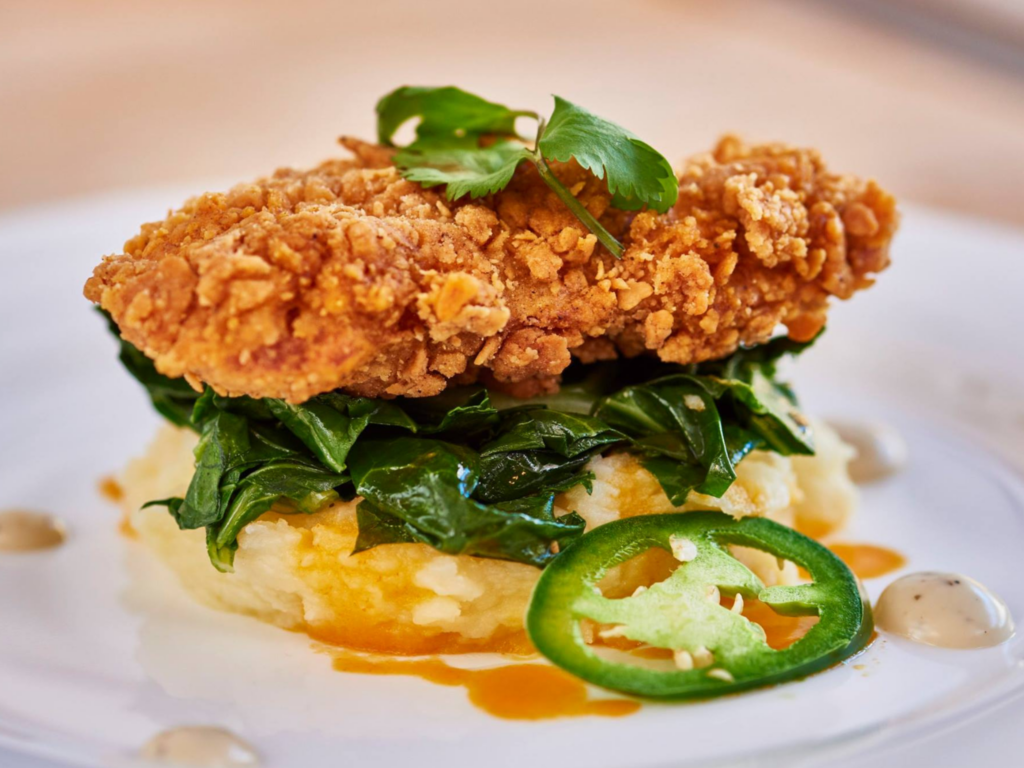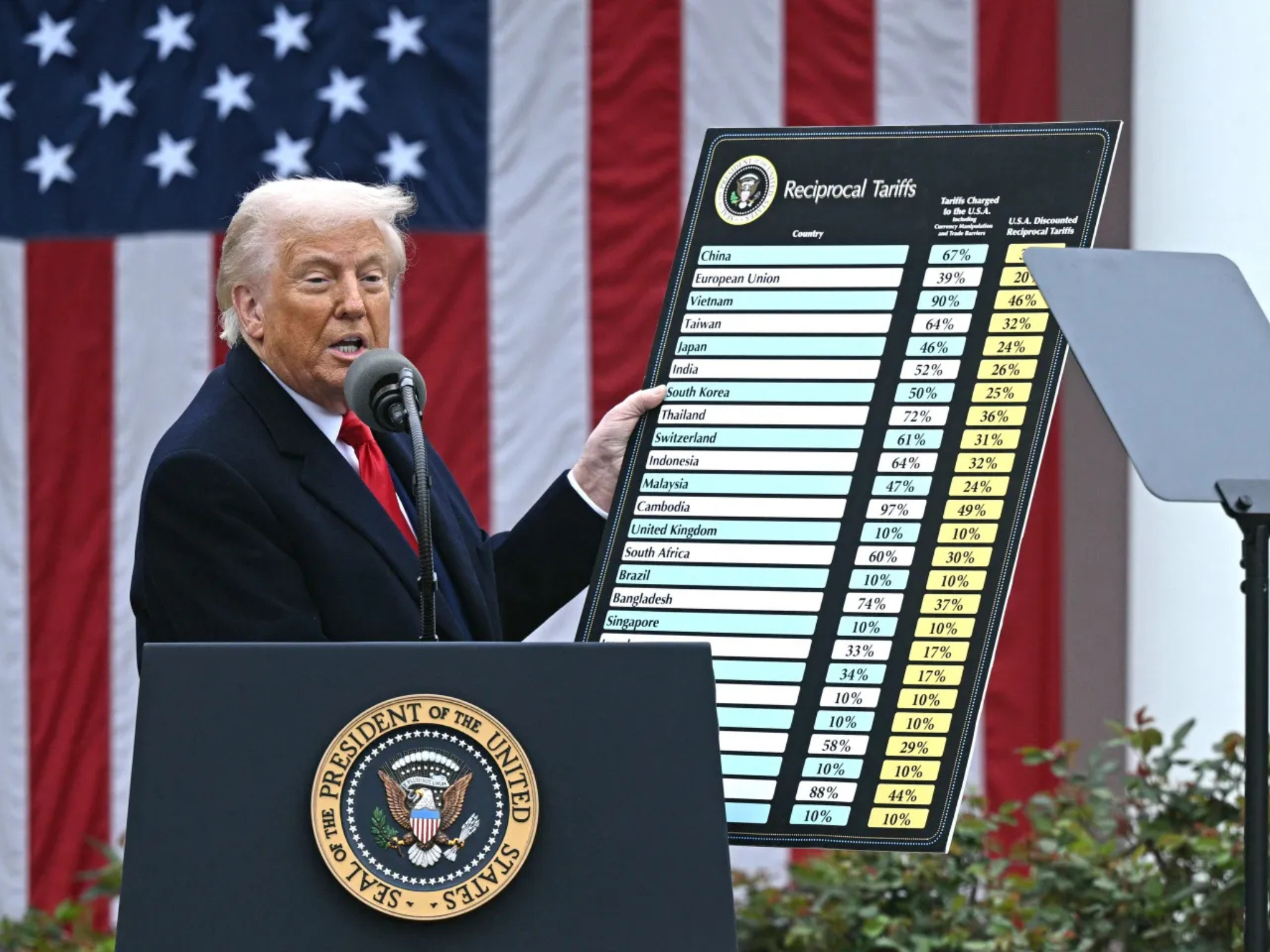What Food Tech Investors Are Telling Startups in the Midst of Trump’s Tariff War
6 Mins Read
With all the uncertainties around global tariffs, most industries are in a precarious position, including food tech. Here’s what sector VCs are advising startup founders about the global trade war.
It’s only mid-April, but ‘tariff’ could already be the word of the year come the end of 2025.
What began as a campaign promise has quickly turned into global turmoil, as US President Donald Trump levies taxes on most foreign goods, threatening widespread price hikes for consumers and possibly fatal disruptions for many businesses.
The food tech sector faces threats from several areas. Tariffs on everything from raw materials and produce to equipment are likely to result in greater costs for businesses, which would likely pass that on to the consumer.
When Trump had announced his initial tariffs on Canada, Mexico and China, analysis from lawmakers suggested that these would set American families back up to an extra $2,000 per year due to high food costs.
But this was before the trade war went global – and it’s a situation that is changing by the day. At the start of this week, these taxes ranged from 10% all the way to 50%. Now, however, the president has made a U-turn, pausing all retaliatory tariffs for 90 days and charging a flat 10% rate – all, that is, except China.
The unprecedented tariff war has quickly and alarmingly escalated this week, with each country upping their tariffs in retaliation. As things stand, goods imported from China will be charged a 125% tax in the US, while China’s rate for American imports stands at 84%.
Nothing is certain, and the market volatility is bad news for the food tech sector. Venture capitalists have been cooling on food tech investments over the last few years, and there are fears that the tariffs would drive them further away.
VCs have highlighted how the trade war between the US and these countries is likely to lower valuations, decrease exits, and give investors pause in terms of deployment – and this would cause a ripple effect on the food tech ecosystem, too.
So what’s the best course to chart for startup founders in the food tech ecosystem?
To move or not to move

“Luckily, we only have two companies that will most likely tap into the US market,” Matteo Leonardi, investment manager at Italian VC firm Grey Silo Ventures, tells Green Queen. “My advice to them is: as we are dealing with an industry that is already fighting to survive on the slightest of margins – and at industrial scale, let alone at pilot scale – US tariffs could result in a complete erosion of those already-thin margins.”
This gloomy outlook is shared by many investors. “The sector downturn is likely to last until at least 2026, and the sector will be hurt by volatile capital markets, the likely economic downturn caused by tariffs and a trade war, farm incomes at their lowest level in at least a decade, and the spread of zoological diseases,” writes Adam Bergman, managing director of EcoTech Capital.
He predicts that the polycrisis will have a profound, lasting impact on the industry. “I expect that over 70% of agtech and food tech companies will either go bankrupt, cease operations, or be liquidated in a fire sale. It is likely that a similar percentage of the capital invested in these companies will never be recouped.”
This is why Leonardi suggests looking outwards: “It would be best to stay cautious and, if the techno-economic analysis does not allow [you] to bear the extra burden, redirect go-to-market as well as regulation-facing activities to other markets, at least until the situation takes a clearer outlook.”
Heather Courtney, general partner at Alwyn Capital, concurs. “Don’t overlook exchange rates: they can work for you or against you,” she says. In some cases, producing in a country with a weaker currency and selling into the US can help offset tariffs and preserve margins, so it’s worth factoring currency dynamics into your early strategy. Her firm has invested in the likes of New School Foods, BlueNalu, and Upside Foods.
“Across the food tech sector, startups need to map what their potential exposure is, and how to adapt for minimum economic impact and maximum potential for the long run,” adds Nadav Berger, founding general partner at Peakbridge, an investor in Standing Ovation, Imagindairy, and Vow. “That might mean moving away from the US as a target market – or instead speeding up the establishment of US operations.”
Flexibility, foresight, and focus

Steve Simitzis, a partner at Solvable Syndicate, has one key piece of advice: Stay focused on what you can control. This includes keeping cash burn in check and extending the runway.
This was echoed by Seth Bannon, founding partner of Fifty Years. In an email sent to his firm’s portfolio companies – which include Upside Foods, Meati, Alpine Bio, and Rebellyous Foods – he outlines managing runway as one of his three major recommendations.
“If possible, get to 18-24 months of cash on hand to weather potential market downturns,” he wrote, adding that founders should consider temporary hiring freezes and cut non-essential spending. “Accelerate your path to profitability to reduce dependency on external capital,” he added.
Speaking of which, Bannon noted that if the founders are fundraising, they should close the round as soon as possible. “Expect valuations to decline; prepare to accept additional capital under potentially less favourable terms,” he cautioned. “If you’ve had the ability to raise more capital (e.g. maybe your last round was oversubscribed), opt to take more cash.”
Courtney, meanwhile, encourages a “mindset of flexibility and foresight” for early-stage founders, especially those pre-revenue or just entering the market.
“You might not be dealing with tariffs directly today, but the choices you make now (about ingredients, co-manufacturers, or go-to-market regions) can either limit or unlock your ability to adapt later. Build with optionality in mind, and wherever possible, ensure that your margins can flex to absorb future shocks,” she says. “And finally, just survive.”
A sense of déjà vu

For some investors, this isn’t unlike previous market disruptions. “Similar to 2008/09, customers may proactively reduce their planned spend on your product or service. Model increases in time to close, decreases in contract value, increases in net payment times,” Bannon says in his email to founders.
“Founders are already scrambling to close rounds and shore up supply chains. What I’ll say about that is yes, move swiftly, but don’t panic. That’s how bad deals get done,” Simitzis tells Green Queen. Some of the companies under his firm Solvable Syndicate’s portfolio include Omni and The Raging Pig Company.
“As for uncertainty, haven’t we been here before?” he ponders. “So far in the 2020s, we’ve had Covid-19, [the] Silicon Valley Bank failure, the war on Ukraine, runaway inflation, and now tariffs.”
His advice? “Find yourself an ‘Only the Paranoid Survive’ embroidered pillow on Etsy and live by it.”
Peakbridge’s Berger, meanwhile, offers some words of encouragement. “What we’re seeing now isn’t just uncertainty, it’s volatility; and though this is indeed a profound global shock, surviving and thriving in that state is the DNA of a successful startup.”
He adds: “In any case, the global food supply chain – already deeply flawed and under pressure – is taking another hit, which is also a significant opportunity for smart companies and technologies looking to remake the future food system.”



